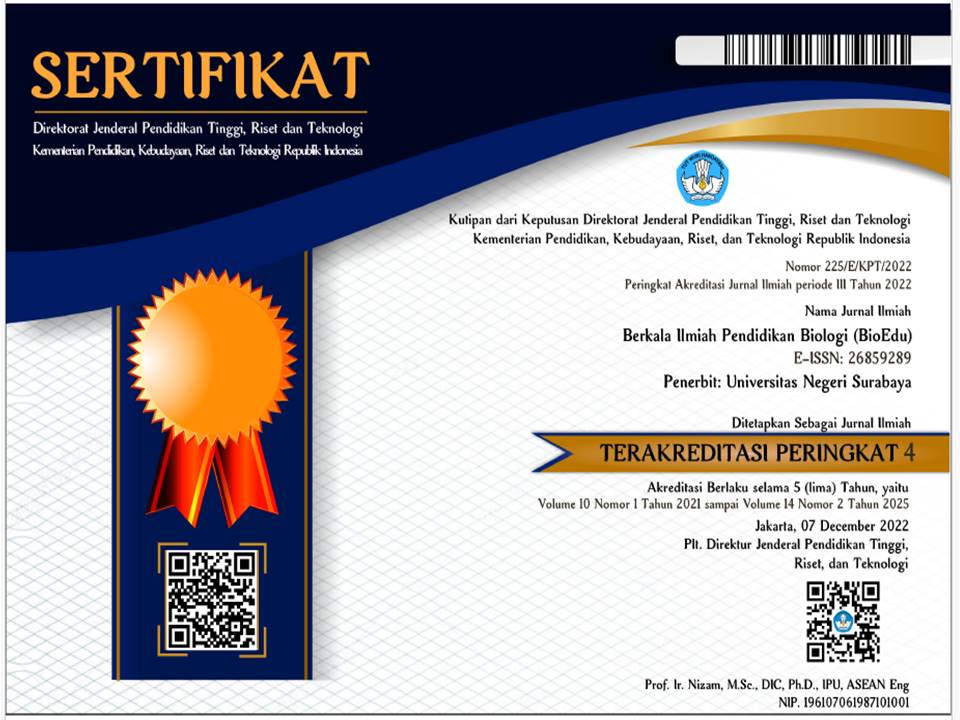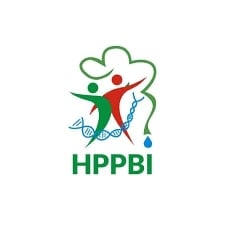Development of Student Worksheets with Carbon Footprint Object Based on Problem-Based Learning to Improve Students' Critical Thinking Skills
DOI:
https://doi.org/10.26740/bioedu.v13n1.p175-186Abstract
Critical thinking skills are a competency that can be achieved through students' thinking processes that actual problem-solving processes can trigger. Problem-Based Learning (PBL) is one of the learning strategies that can focus students on solving problems independently to train higher-order thinking skills. This study aims to describe the validity, practicality, and effectivity of student worksheets with carbon footprint objects based on PBL to improve students' critical thinking skills. This development research used the Research and Development (R&D) method with the ADDIE procedure. The development of student worksheet was conducted at the Department of Biology, FMIPA UNESA, and applied to 35 X-7 SMAN 1 Sidoarjo students. Data collection techniques are interviews, validation, observation, tests, and questionnaires. The research instruments used were student worksheet validation sheets, implementation observation sheets, student response questionnaire sheets, pretest, and posttest assessment sheets, and critical thinking indicator achievement sheets. The data analysis technique used was the analysis of the validity implementation, student responses, learning completeness, and the achievement of indicators of critical thinking. The results are that the student worksheet with carbon footprint object based on PBL is stated to be very valid with a score of 3.8, declared very practical based on the implementation of student worksheet with a percentage of 97.8%, and very practical based on student responses with a percentage of 97.8%, and also declared effective based on mastery learning outcomes of 91% and effectively improve critical thinking skills of 86.7%.
Keywords: problem-based learning, student worksheet, critical thinking, carbon footprint.
Downloads
 Abstract views: 142
,
Abstract views: 142
, PDF Downloads: 84
PDF Downloads: 84













